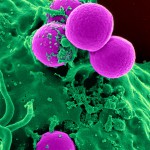Ever wondered why we sometimes feel an unusually strong attraction towards certain members of the opposite sex? It turns out the butterflies in our stomachs could actually be caused by differences in our genetic make-up.
A lot of light has been shed on the role of genetic factors that govern our mate choices in recent years. Increasing evidence emerged that hints towards an important influence of Major Histocompatibility Complex (or MHC) receptors on our decision making. These receptors act like genetic tags, used to distinguish foreign cells from our body´s own, but also to determine the degree of genetic similarity between two people. Now presumably also through pheromone sensing.
While the important role of pheromones and MHC receptors has already been demonstrated in many vertebrates, a controversial study in 2008 showed that humans could follow a similar path. There was a lot of debate over the robustness of the results, however a subsequent study confirmed the initial findings in 2012. Turns out that partners in European populations show a significantly high dissimilarity in their MHC receptors. This implies genetically dissimilar people are more attracted to each other, which could act as a safety mechanism to limit inbreeding to a minimum. Who wants to end up like poor Charles of Spain, right?
It´s important to note that more research has to be performed on this topic, but the results gathered so far look promising. So the next time you´re deciding on swiping left or right remember there is more than meets the eye.
Watch the video bellow to learn more fun facts about the factors governing our mate choices!
By Luka Zupančič, MSc, University of Applied Sciences Technikum Vienna











